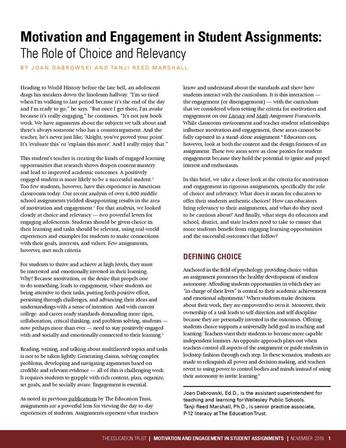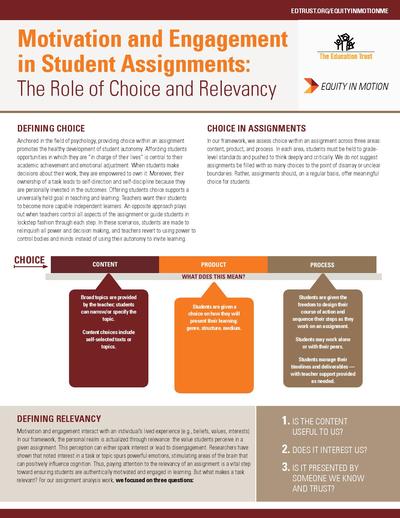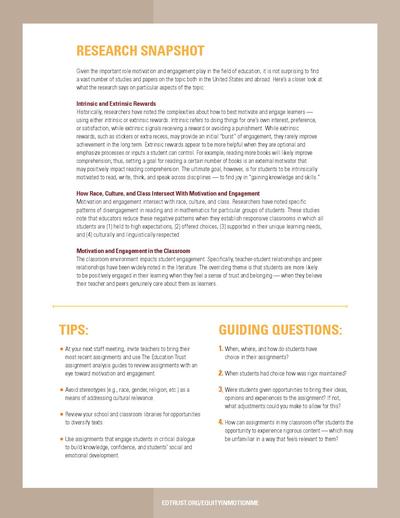
Motivation and Engagement in Student Assignments by Tanji Reed Marshall @Remarsh76 and Joan Dabrowski @joandabrowski was originally posted on Nov 1, 2018 by The Education Trust. Click here to read the original post.
When students have the opportunity to attend classes that are engaging, creative, and relatable to their lives, they are more likely to succeed academically. Unfortunately, several new analyses have found that far too many students experience classroom assignments that fail to prepare them for life beyond school.
In a new report, we examined two powerful levers for engaging learners — choice and relevancy — and explored how educators can use these levers to increase student motivation and engagement.
“Classroom assignments — the daily tasks we ask our students to do — are a powerful lens for viewing teaching and learning. They reflect how students experience a curriculum and reveal a teacher’s expectations of what students can achieve.” — Tanji Reed Marshall, Ph.D., senior associate of P-12 practice
Under our current college- and career-ready standards, students are expected to collaborate and demonstrate critical thinking and problem-solving skills, all of which require they be actively engaged in their learning. Our findings show that less than 3 percent of middle school math assignments and less than 15 percent of middle school literacy assignments allowed for student choice and relevancy.
In “Motivation and Engagement in Student Assignments: The Role of Choice and Relevancy,” we explore how educators can bring choice and relevancy into their daily assignments. The authors explain how choice can and should be provided in terms of content, product, and process.
Teachers bring relevancy to assignments when they:
- Teach rigorous content using themes across disciplines, cultures, and generations; consider essential questions; and explore universal understandings
- Use real-world materials and events to explore salient topics
- Connect with the values, interests, and goals of their students
There is clearly work to do if we are committed to the idea that student motivation and engagement are important and will lead to improved academic achievement. This begins, first and foremost, with knowing and valuing students.
Click the Link Below to Download the Full Report
| motivation_engagement_final_lr.pdf |



